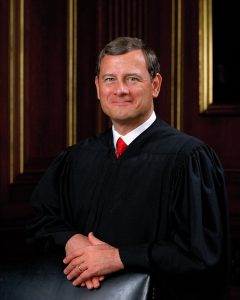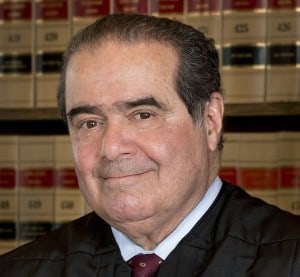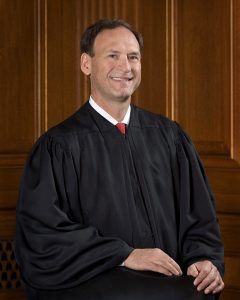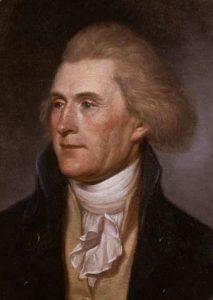The complete article is available here.
Myth #2: The federal government, especially through its court system, has absolute authority over marriage.

Fact: This myth is completely unconstitutional. Courts do not have authority to make laws. Moreover, the Tenth Amendment of the US Constitution states, “The powers not delegated to the United States by the Constitution, nor prohibited by it to the states, are reserved to the states respectively, or to the people.” The Constitution is silent about the matter of marriage, and that alone places marriage out of the reach of the federal judiciary, including the Supreme Court.
In his dissenting opinion in Obergefell, Chief Justice John Roberts wrote,
[T]his Court is not a legislature. Whether same-sex marriage is a good idea should be of no concern to us. Under the Constitution, judges have power to say what the law is, not what it should be. The people who ratified the Constitution authorized courts to exercise “neither force nor will but merely judgment.” The Federalist No. 78, p. 465.
Justice Scalia, dissenting, wrote,

Today’s decree says that my Ruler, and the Ruler of 320 million Americans coast-to-coast, is a majority of the nine lawyers on the Supreme Court. The opinion in these cases is the furthest extension in fact— and the furthest extension one can even imagine—of the Court’s claimed power to create “liberties” that the Constitution and its Amendments neglect to mention. This practice of constitutional revision by an unelected committee of nine, always accompanied (as it is today) by extravagant praise of liberty, robs the People of the most important liberty they asserted in the Declaration of Independence and won in the Revolution of 1776: the freedom to govern themselves.

Justice Alito, dissenting, wrote,
Today’s decision shows that decades of attempts to restrain this Court’s abuse of its authority have failed. A lesson that some will take from today’s decision is that preaching about the proper method of interpreting the Constitution or the virtues of judicial self-restraint and humility cannot compete with the temptation to achieve what is viewed as a noble end by any practicable means.…
Myth #4: The Supreme Court is the final arbiter of disputes in the United States.
Fact: The Founders of our country never intended that the Supreme Court of the United States would acquire the power it now has. Often, we hear that the Framers established “equal” or “co-equal” branches of government—executive, legislative, and judicial. Even if it were true the Founding Fathers intended for them to be equal, our government has departed from this principle. The courts have stepped way beyond their constitutional authority.
In the Federalist Papers—initially anonymous articles published by a New York newspaper that encouraged New York to ratify the proposed US Constitution—Alexander Hamilton wrote,

It proves incontestably, that the judiciary is beyond comparison the weakest of the three departments of power; that it can never attack with success either of the other two; and that all possible care is requisite to enable it to defend itself against their attacks. It equally proves, that though individual oppression may now and then proceed from the courts of justice, the general liberty of the people can never be endangered from that quarter; I mean so long as the judiciary remains truly distinct from both the Legislature and the Executive. [Federalist Paper #78].
James Madison said this: “In republican government, the legislative authority necessarily predominates” [Federalist Paper #51].

Another Founding Father, Thomas Jefferson, became alarmed about the growth of judicial power he himself was witnessing, and he openly expressed his concerns. Each of the following is a quote from the third US President.
- We already see the [judiciary] power, installed for life, responsible to no authority…advancing with a noiseless and steady pace to the great object of consolidation. The foundations are already deeply laid by their decisions for the annihilation of constitutional State rights and the removal of every check, every counterpoise to the engulfing power of which themselves are to make a sovereign part.
- [T]he opinion which gives to the judges the right to decide what laws are constitutional and what not, not only for themselves in their own sphere of action but for the Legislature and Executive also in their spheres, would make the Judiciary a despotic branch.
- To consider the judges as the ultimate arbiters of all constitutional questions; a very dangerous doctrine indeed, and one which would place us under the despotism of an oligarchy.…[T]heir power [is] the more dangerous as they are in office for life and not responsible, as the other functionaries are, to the elective control. The Constitution has erected no such single tribunal, knowing that to whatever hands confided…its members would become despots. It has more wisely made all the departments co-equal and co-sovereign within themselves.…When the legislative or executive functionaries act unconstitutionally, they are responsible to the people in their elective capacity. The exemption of the judges from that is quite dangerous enough.
- It has long been my opinion, and I have never shrunk from its expression…that the germ of dissolution of our Federal Government is in the constitution of the Federal Judiciary – an irresponsible body…working like gravity by night and by day, gaining a little today and a little tomorrow, and advancing its noiseless step like a thief over the field of jurisdiction until all shall be usurped from the States and the government be consolidated into one. To this I am opposed.
 In an extremely insightful Prager University video titled “Why We’re Losing Liberty,” Dr. Robert George, Professor of Jurisprudence at Princeton University, explains that the Founders never foresaw that the Supreme Court would become the entity it is today, exercising unrestrained power. He says that “now, most Americans think of the Supreme Court as the ultimate arbiter of almost every social and political dispute. The Founders never envisioned the court in this role.” Go here to watch this excellent presentation.
In an extremely insightful Prager University video titled “Why We’re Losing Liberty,” Dr. Robert George, Professor of Jurisprudence at Princeton University, explains that the Founders never foresaw that the Supreme Court would become the entity it is today, exercising unrestrained power. He says that “now, most Americans think of the Supreme Court as the ultimate arbiter of almost every social and political dispute. The Founders never envisioned the court in this role.” Go here to watch this excellent presentation.
Now, most Americans think of the Supreme Court as the ultimate arbiter of almost every social and political dispute. The Founders never envisioned the court in this role.
—Professor Robert George—
These four myths not only led to the Obergefell ruling; they also are being reinforced by that ruling. It is time for the American people to understand the limitations the Constitution has placed, and places, on the federal government, particularly the judiciary. Furthermore, it is time for the people to demand that these restraints be honored and respected.
It is difficult to think of a matter that could be more out of bounds for the federal government to manipulate than marriage.
Copyright © 2017 by B. Nathaniel Sullivan. All rights reserved.